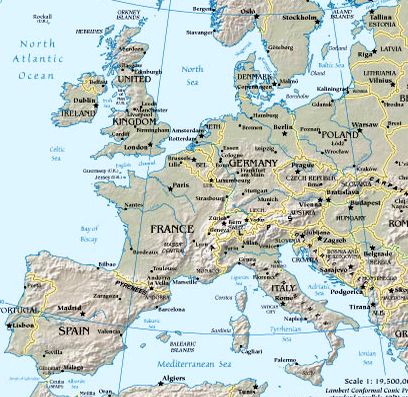When Spain's Prime Minister José Rodríguez Zapatero this summer revealed a plan to offer women 2,500 euros ($3,400) to have more children, he was seeking to reverse a future in which the elderly would outnumber the working young -- a demographic trend that affects not only Spain, but also the entire continent. For almost a generation, wealthy and well-fed Europe has been bringing forth too few children to replenish its graying population for the coming decades. Save Ireland, and possibly amorous France, birthrates have dipped far below the replacement level of 2.1, giving the old continent an overall average of 1.5 births per woman -- rates that make North American women look like fertility goddesses at 2.08 apiece. Even in Mediterranean countries such as Italy, Spain, and Greece, which at one time exemplified the Biblical tradition of fruitful families, and which stood for the defense of rigid religious values, childlessness is fast gaining acceptance. So much so, that Spain, for instance, is expected to shed 10 million of its inhabitants by 2050 -- despite the current influx of immigrants who tend to have more babies than the natives.
European Governments Battle the Continent’s Birth Dearth

